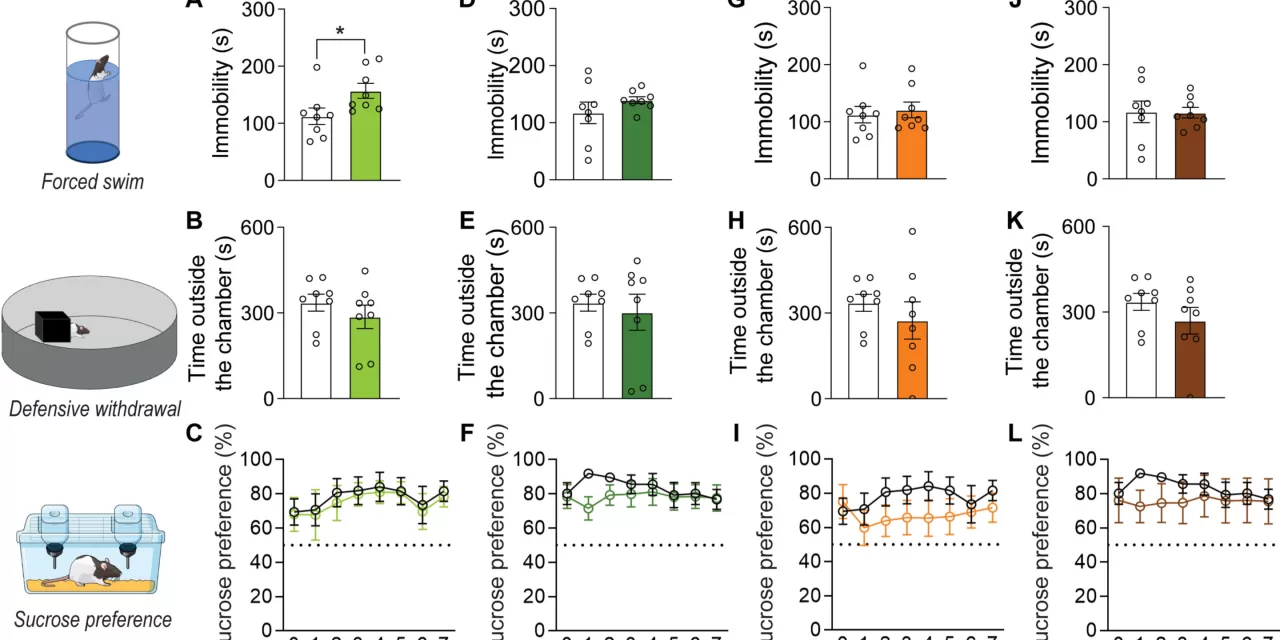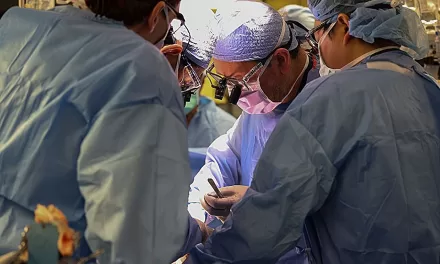A groundbreaking study led by researchers at UF Health has shed light on why males and females may experience stress differently, offering critical insights into the brain’s molecular mechanisms in response to acute challenges. The findings, published in Science Advances on January 22, highlight key biological differences in stress responses that could revolutionize personalized medicine.
The Role of Allopregnanolone in Stress Adaptation
The study focused on allopregnanolone (AP), a neurosteroid that the brain produces in response to acute stress—an immediate reaction to sudden challenges or threats. AP plays a crucial role in regulating stress by enhancing focus and energy, helping individuals manage stressful situations more effectively.
The production of AP depends on an enzyme called 5α-reductase (5αR), which exists in two primary forms: 5αR1 and 5αR2. Researchers at the UF College of Pharmacy conducted animal studies to investigate how these enzymes function and their role in stress responses among males and females.
Key Findings: Sex-Specific Stress Responses
Dr. Marco Bortolato, M.D., Ph.D., a professor of pharmacodynamics at the University of Florida College of Pharmacy and senior author of the study, noted that men generally exhibit outward, aggressive reactions to acute stress, whereas women tend to internalize their responses. This distinction is believed to contribute to the higher prevalence of anxiety and depression among women.
The study revealed that in male laboratory rats, acute stress led to an increase in 5αR2 levels in the prefrontal cortex—a key brain region involved in decision-making and emotional regulation. However, female rats did not show the same change, indicating a significant sex-based difference in stress management at the molecular level.
Further analysis showed that 5αR2 is essential for producing AP during stress, while 5αR1 primarily maintains baseline levels of this neurosteroid. When researchers reduced 5αR2 levels in male rats, the animals exhibited slower responses to both stress and rewarding stimuli. However, administering AP restored their ability to adapt, demonstrating the enzyme’s crucial role in stress resilience.
Implications for Mental Health Treatment
These findings have significant implications for developing targeted treatments for stress-related disorders such as depression. According to Bortolato, understanding why women are more susceptible to depression than men could pave the way for more effective, personalized treatments.
One of the most promising aspects of this research is its potential application in drug development. Bortolato and his team are exploring the possibility of creating steroid-based compounds that could enhance AP production. These new treatments could provide rapid relief for individuals suffering from depression, addressing a major limitation of conventional antidepressants, which often take weeks to show effects.
“Depression is the leading cause of disability worldwide, largely due to increasing levels of chronic stress,” Bortolato explained. “Current antidepressants can take two to four weeks to produce noticeable improvements. AP-based treatments, however, could have much faster effects, transforming how we approach depression and other stress-related disorders.”
The study featured contributions from Giulia Braccagni, Ph.D., co-first author and postdoctoral fellow at the UF College of Pharmacy, and Caterina Branca, Ph.D., a research assistant professor at the UF College of Pharmacy.
Conclusion
This research marks a significant step toward understanding the molecular mechanisms underlying stress responses in males and females. By uncovering the role of 5αR2 in stress adaptation, the study opens new doors for personalized medicine and innovative treatments for mental health conditions.
Disclaimer: The findings in this study are based on preclinical animal research and may not directly translate to humans. Further studies and clinical trials are required to confirm these results and develop effective treatments for human patients.












